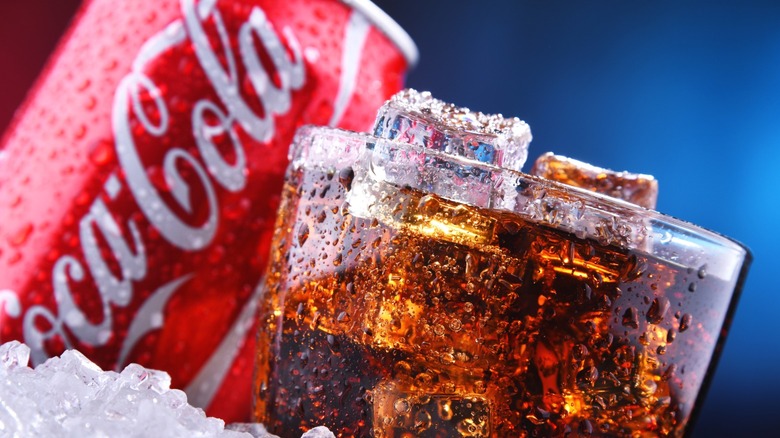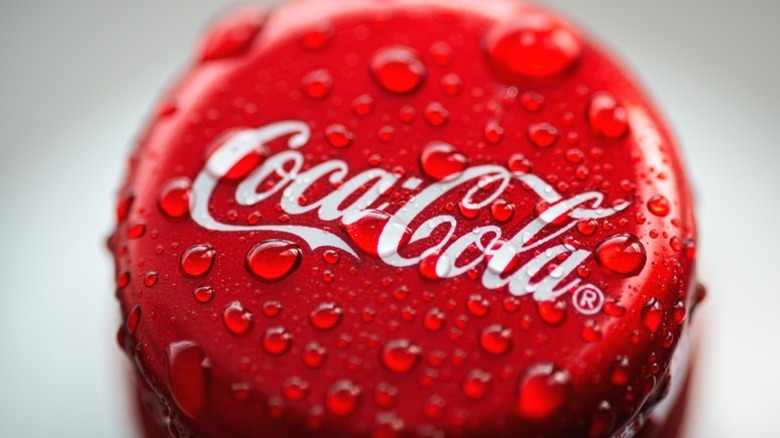Coca-Cola Is A Proven Cure For One Medical Condition
Coca-Cola may be delicious enough that a general of the Soviet Army was willing to risk aggravating Stalin by making a deal with the West for disguised bottles of the soda, but you certainly can't call it healthy. Anything with high fructose corn syrup in it isn't going to be great for your cardiovascular health, and the soda's acidic quality means it can do a number on your teeth, as well. (And the less we say about the kidney stones, the better.) With that said, however, there is one disease, rare though it may be, where Coke may be an effective treatment: as it turns out, Coca-Cola might help with gastric phytobezoars, although there are some complications. (And you thought those demonstrations of Coca-Cola stripping rust off of metal weren't going to come in handy.)
What's a gastric phytobezoar? We're glad you asked. A bezoar is a term for a mass trapped in the digestive system, and there are several different kinds depending on what's trapped. Infants, for instance, may have lactobezoars of trapped milk, while trichobezoars are masses of hair swallowed by those with a compulsion to eat it. A phytobezoar, then, is a mass of plant material that can't be digested. These masses might be formed from cellulose, grape skins, or even persimmons — but whatever they're made of, you don't want them inside you for very long. That's where Coca-Cola comes in.
Coca-Cola is pretty great at dissolving phytobezoars
Phytobezoars may cause nausea, vomiting, and a lack of appetite, but they're no match for the carbonated might of Coca-Cola. A number of studies over the course of 10 years showed that drinking Coca-Cola helped dissolve phytobezoars in over 90% of cases when combined with other forms of treatment. Not only that, Coca-Cola alone was enough to dissolve the phytobezoar half the time.
Now, bear in mind that phytobezoars related to persimmon consumption — common in Asian countries — may be a different beast from other kinds of phytobezoars. The study in the previous paragraph mentioned that Coca-Cola was only able to resolve persimmon-related phytobezoars, or diospyrobezoars, a little under 25% of the time. Several years later, however, another study was published showing that Coca-Cola did a pretty great job with diospyrobezoars after all. So if you wake up one morning feeling as though a tree is growing inside your stomach, drinking some Coke might be just what the doctor ordered.

